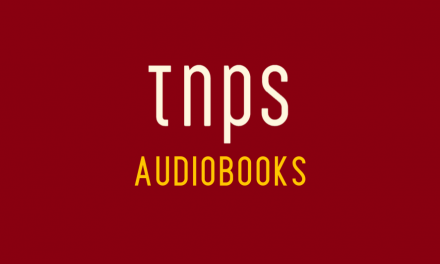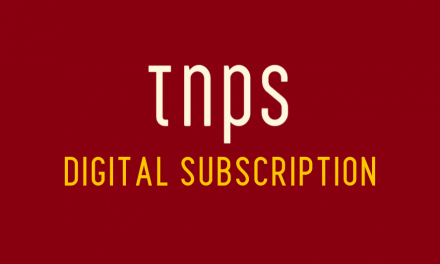The question is no longer if AI voices will reshape publishing, but how wisely we’ll wield their power.
How Voice Cloning is Reshaping Storytelling, Accessibility, and Ethical Boundaries
The much-hyped launch of Melania Trump’s AI-narrated memoir, Melania, has ignited debate far beyond its political undertones. Leave aside for one moment who she is, and leave aside the uncomfortably cozy relationship of the Trump Administration with the AI billionaire quad.
By collaborating with ElevenLabs to clone her voice for multilingual audiobook production, Melania Trump has thrust the publishing industry into a watershed moment. While critics may fixate on the author, the deeper story lies in the transformative – and irreversible – impact of AI voice technology on publishing.
The Melania Case Study: Efficiency Meets Global Reach
Trump’s memoir, narrated by an AI clone of her voice, exemplifies two key advantages driving adoption:
- Scalability: Audiobook production, traditionally reliant on costly studio time and voice actors, can now be streamlined. ElevenLabs’ technology reportedly requires just minutes of source audio to create a high-fidelity voice clone, slashing production timelines and costs.
- Multilingual Accessibility: The memoir’s upcoming Spanish, Portuguese, and Hindi versions will likely retain Trump’s vocal identity through ElevenLabs’ real-time dubbing tools, which preserve tone and cadence across languages. This eliminates the need for human translators to mimic her voice – a big leap toward democratising global content distribution.
For publishers, such efficiency can be transformative, when they are bold enough to step up. ElevenLabs’ ElevenReader app already hosts AI-narrated works by Maya Angelou and Richard Feynman, and includes posthumous celebrity voices like Judy Garland.
The implications for backlist titles and legacy authors are profound: estates can monetise unpublished works or re-release classics with “authentic” narration long after an author’s death.
Opportunities: Beyond Cost-Cutting
The rise of AI voice cloning isn’t merely about replacing human labour – it unlocks new creative and commercial frontiers:
- Hyper-Personalisation: Imagine memoirs narrated in the author’s voice, podcasts dynamically adjusted to listener preferences, or interactive fiction where characters speak with (permissioned) cloned celebrity voices. ElevenLabs’ emotion-aware models already adapt tone to context, enabling nuanced storytelling.
- Accessibility: AI narration can cater to visually impaired audiences or non-native speakers through multilingual outputs. Publishers like The Economist have tripled podcast revenue in part by using AI voices, proving demand for accessible formats.
- Preservation: Authors and public figures can archive their voices for future projects, ensuring their vocal legacy endures. This aligns with initiatives like the Parkland victims’ AI-generated pleas for gun reform, showcasing technology’s potential for social impact.
Ethical Quandaries: Consent, Authenticity, and the Deepfake Dilemma
While ElevenLabs emphasises ethical safeguards – requiring proof of consent for voice cloning and banning political deepfakes, risks persist:
- Consent Boundaries: Even with Trump’s participation, questions linger. How much control do authors retain over their AI voice? Could cloned voices be repurposed without oversight? The Atlantic’s experiment, where a journalist’s clone spewed fabricated statements, means that for now at least, there is fragility of trust.
- Erosion of Human Craft: Voice actors and narrators face displacement. While ElevenLabs positions itself as a tool for “augmenting” creativity, unions like SAG-AFTRA warn of job losses in audiobook production. And yes, some job will go. Especially among those who refuse to adapt and learn how to use AI efficiently.
- Deepfake Proliferation: Tools similar to ElevenLabs are already exploited to mimic politicians like Joe Biden, raising alarms about electoral misinformation. Publishers must navigate a landscape where synthetic voices blur lines between fact and fiction.
The Road Ahead: Regulation and Reinvention
The genie is out of the bottle – AI narration is here to stay. The industry’s challenge lies in balancing innovation with responsibility. It doesn’t have to be all negative for the human side. But it will require adaptation.
- Transparency: Mandating clear labelling of AI-generated content, as proposed by the Brennan Center, could preserve trust. Publishers might adopt blockchain-based verification to certify authentic clones.
- Licensing Frameworks: Royalty models for AI voice usage must evolve. ElevenLabs’ partnerships with estates (for example, Jerry Garcia) suggest a blueprint for licensing posthumous voices, but standardised contracts are urgently needed. In the US, progress is being made. In the UK, Luddite resistance reigns.
- Creative Collaboration: Forward-thinking publishers are already merging AI efficiency with human artistry. For instance, hybrid projects could pair AI narration with live actor performances, preserving jobs while leveraging scale. Again, adaptation over resistance.
A New Chapter for Publishing
Melania Trump’s AI-narrated memoir is not a gimmick – it’s a harbinger of industry-wide reinvention. The technology’s potential to democratise access, preserve legacies, and innovate storytelling is immense, but the Luddite Fringe is determined to cling to last-century standards.
Yes, there are risks, of course. And some of these risks demand proactive governance. As ElevenLabs’ CEO Mati Staniszewski envisions a “Spotify of voices”, publishers must lead the charge in ethical adoption by meaningful adaptation. The future of audiobooks isn’t human versus machine – it’s about crafting a symphony where both harmonise.
The question is no longer if AI voices will reshape publishing, but how wisely we’ll wield their power.
This post first appeared in the TNPS LinkedIn newsletter.





